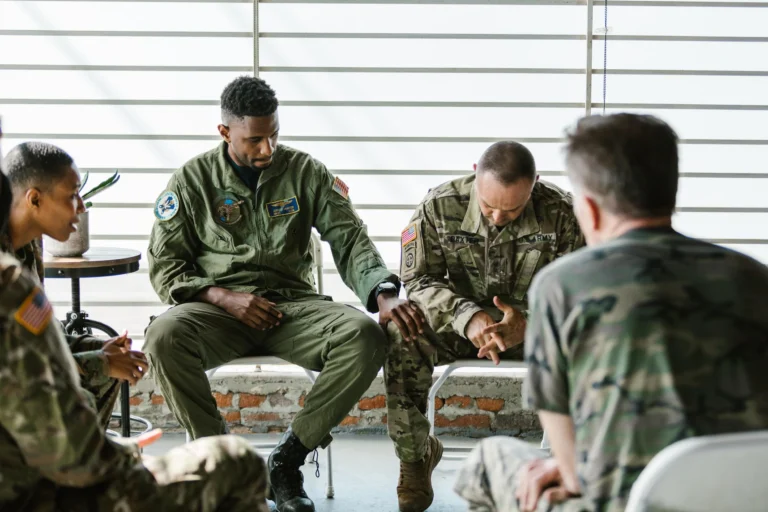For those young men who were fortunate enough to return from the trenches after the First World War, many came home to a lifetime of nightmares, anxiety, guilt, and despair. What we then called “shell shock” was met with deep stigma. Talking therapies emerged to meet this new wave of suffering, and the post-war reorganization of services for veterans reshaped mental healthcare for everyone—a legacy we still feel today.
Yet most veterans were left to reintegrate as best they could, without formal help. The result was a collective, generational trauma. My own grandfather fought in the trenches and later lost a son in the Second World War. That family grief and the unspoken residue of war shaped my parents, and—inevitably—me. This is the social price we all pay when we send people to fight and then fail to help them heal.
From “Shell Shock” to PTSD—But Support Still Lags
Men’s mental health has rarely been treated as a priority, and the mental health of our soldiers even less so. Society still asks service members to put themselves in harm’s way and then quietly “get on with it” on their return. A survey in recent years suggested that tens of thousands of veterans from Iraq, Afghanistan, and other conflicts have come into contact with the criminal justice system—many receiving custodial sentences. Behind those numbers are untreated trauma, moral injury, and the survival strategies people reach for when support is scarce.
The pattern is tragically familiar: to cope with intrusions, hyper-arousal, and low mood, many turn to alcohol or drugs; relationships fray; anger spills over. Without timely treatment, trauma can echo into violence at home and into communities. If we are prepared to send young men to war, we are duty-bound to care for their emotional welfare when they return. Prison is a poor substitute for therapy.
Therapy Works—When It’s Offered and Accessible
Evidence-based therapies for trauma exist and are effective—trauma-focused CBT, EMDR, and structured peer support among them. In the UK, veterans can access dedicated help through the NHS’s Op COURAGE: Veterans Mental Health and Wellbeing Service, which offers assessment, talking therapies, medication support, and help with housing, employment, and addiction. Services like these should be the default pathway—not the exception—when a veteran is struggling.
Therapy also needs to fit how men engage. Group spaces where men feel psychologically safe, plain-English invitations (“build confidence” rather than “treat depression”), and practical tools that reduce shame and increase agency all matter. Digital options can widen access too—see how Computerised CBT programs let men start structured care privately and at their own pace.
What Families and Communities Can Do
Healing isn’t only clinical. Families and communities can help by naming anger without blame and by learning trauma-informed ways to de-escalate conflict (our overview on Anger, Aggression and Abuse is a useful primer). Everyday regulation skills—breathing, grounding, and brief meditation—can reduce physiological arousal and improve sleep; a simple starter practice is outlined here: How To Meditate – a Simple Meditation Technique.
Therapy, Not Prison—A Clear Choice
I’ve sat with men who’ve seen and done things no one is prepared for, and listening can be harrowing. But difficulty is no excuse for neglect. With the right support, veterans can recover, rebuild relationships, and contribute richly to civilian life. When trauma goes untreated, we pay twice—first in personal suffering, then in social harm. Our commitment should be clear: fund timely assessment, expand access to effective therapies, and reserve prison for when it is truly necessary—not as a stand-in for the care we failed to provide.
We can do better—for our soldiers, their families, and our society. Choose therapy, not prison.

